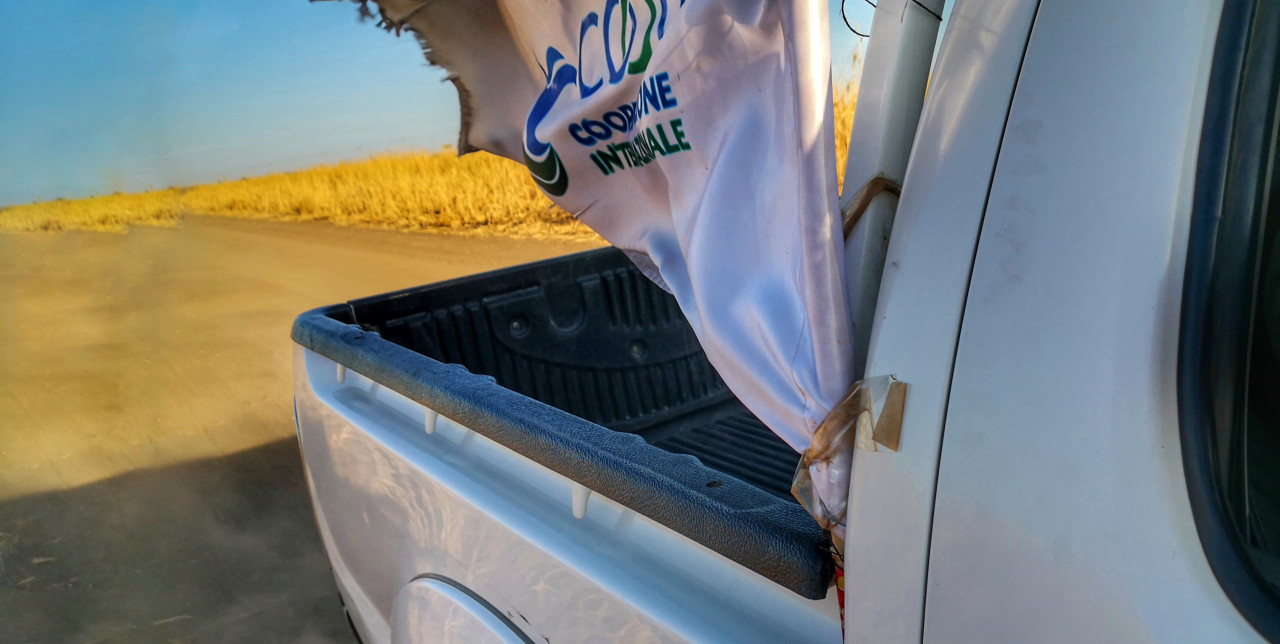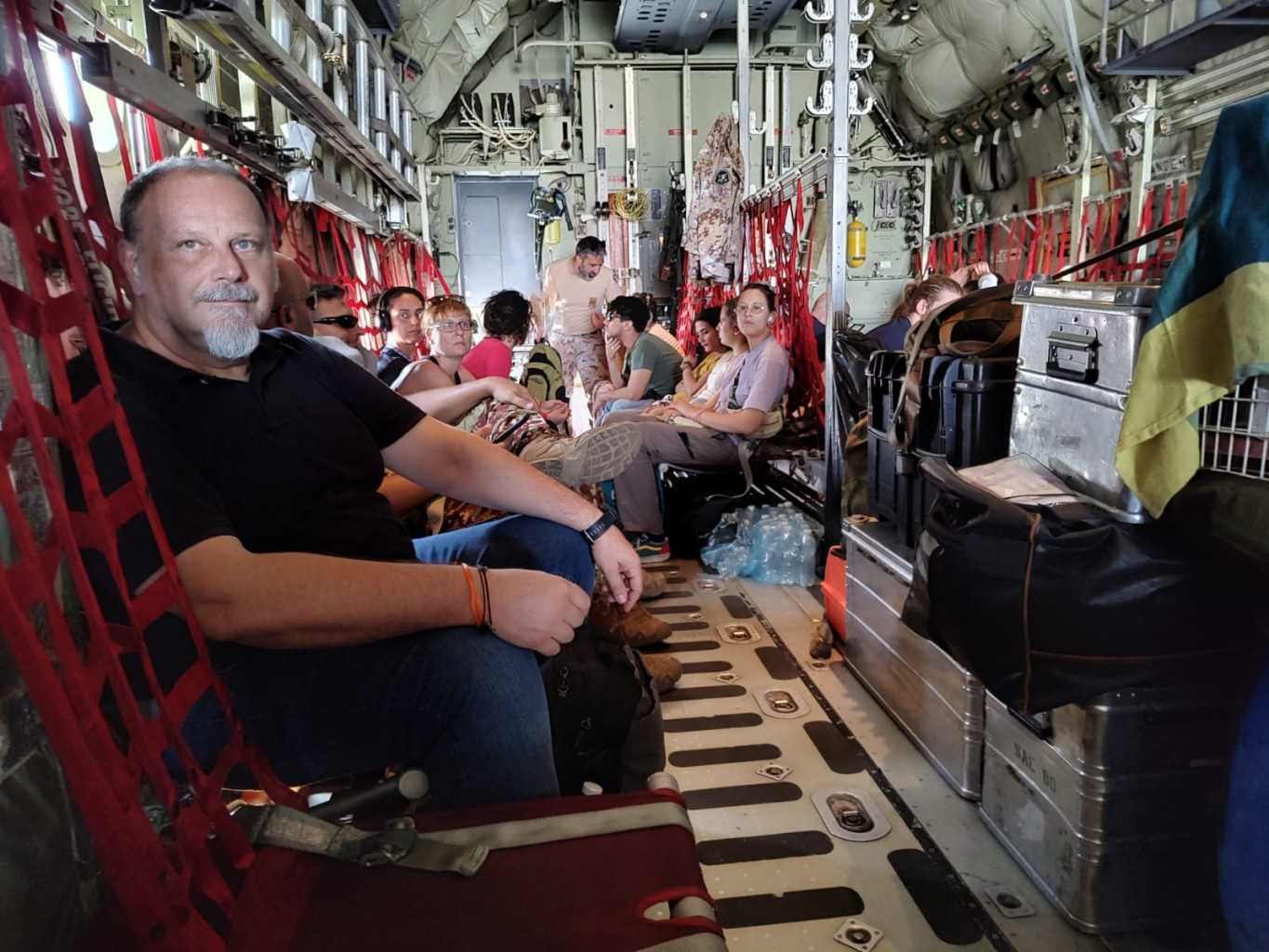28-04-2023 | di COOPI
Crisis in Sudan. COOPI remains in the country, even if international workers repatriate
Due to the serious crisis that broke out on Saturday 15 April, COOPI - Cooperazione Internazionale was forced to repatriate the 11 international workers present in Sudan (8 based in Khartoum and 3 in Darfur), where our organisation has been active since 2004. Despite this, COOPI remains in the country. In fact, thanks to the national staff present (about 50 colleagues who can still be operational), projects continue in the areas less affected by the conflict and, in synergy with expatriates who continue to work remotely, we prepare for the new humanitarian emergency: the flow of displaced people seeking refuge and livelyhood in the north, south and west of Sudan.
The week from 15 to 20 April was very intense for the 8 international operators stranded in Khartoum: four of Italian nationality in the COOPI guesthouse, in the area where the clashes were most violent, i.e. Khartoum 2, and two (an Italian and an Ethiopian with family) in several private homes in the Amarat district. With little electricity and consequently little communication. Survival relied on hibernation kits (food and water for 7 days) and lights off, to make it look as if the houses had been abandoned. Away from the windows to avoid stray bullets. As Andrea Lorenzetti, head of COOPI's Sudan mission, recounts:
"suddenly they started shooting from different points in the city and never stopped, trapping civilians inside these neighbourhoods".
The close cooperation between the various international organisations, the embassies, the United Nations and the Farnesina Crisis Unit made it possible to progressively draw up a plan for evacuation. As a first measure taken by COOPI, a safe place to move to was sought by its own means. The choice fell on the Soba district, south of the city, visitors in the guest quarters of Emergency's hospital, far from the gunfire. From there, the part of European co-operators was transferred to the military airport and then flown to Ciampino (Rome). The African expatriates, on the other hand, travelled with a convoy of the World Food Programme (WFP) to Port Sudan, in a journey by land that lasted over 48 hours; from there they were embarked to Jeddah and yesterday, 27 April, they left for their home countries.
Also yesterday, the 3 international aid workers based in El Fasher finally managed to leave the country on a flight to N'Djamena, welcomed and hosted by COOPI staff in Chad.
Despite the moment of great instability, the remaining two COOPI offices (the one in Khartoum has been closed) continue to be active in areas of the country where the fighting is not so fierce and where conditions still allow the national staff to operate.
If at the beginning of January, according to UN figures, one third of the population was already in urgent need, we are talking about a much higher number after this internal war. The category that remains most in need is precisely that of refugees, with whom COOPI in Khartoum was already working before the crisis, and that of newly displaced persons. The new displacements in recent weeks are in fact one of the focuses of the constant monitoring that the local staff is carrying out. Monitoring is indispensable to be able to prepare logistics plans and be ready to respond to any further emergency situations.
Lorenzetti concludes:
"COOPI Sudan remains in Sudan, is in Sudan and counts on the mission structure and Sudanese colleagues who have never left the country and who are directly involved in advancing our values, principles and the needs of the populations we are dealing with."
To hear Lorenzetti's account
- on Radio popolare (from minute 1.40): https://www.radiopopolare.it/podcast/esteri-di-mercoledi-26-04-2023/
- on Radio InBlu (from minute 15.55): https://www.radioinblu.it/streaming/?vid=0_hf2xlqw4




 Sudan
Sudan
